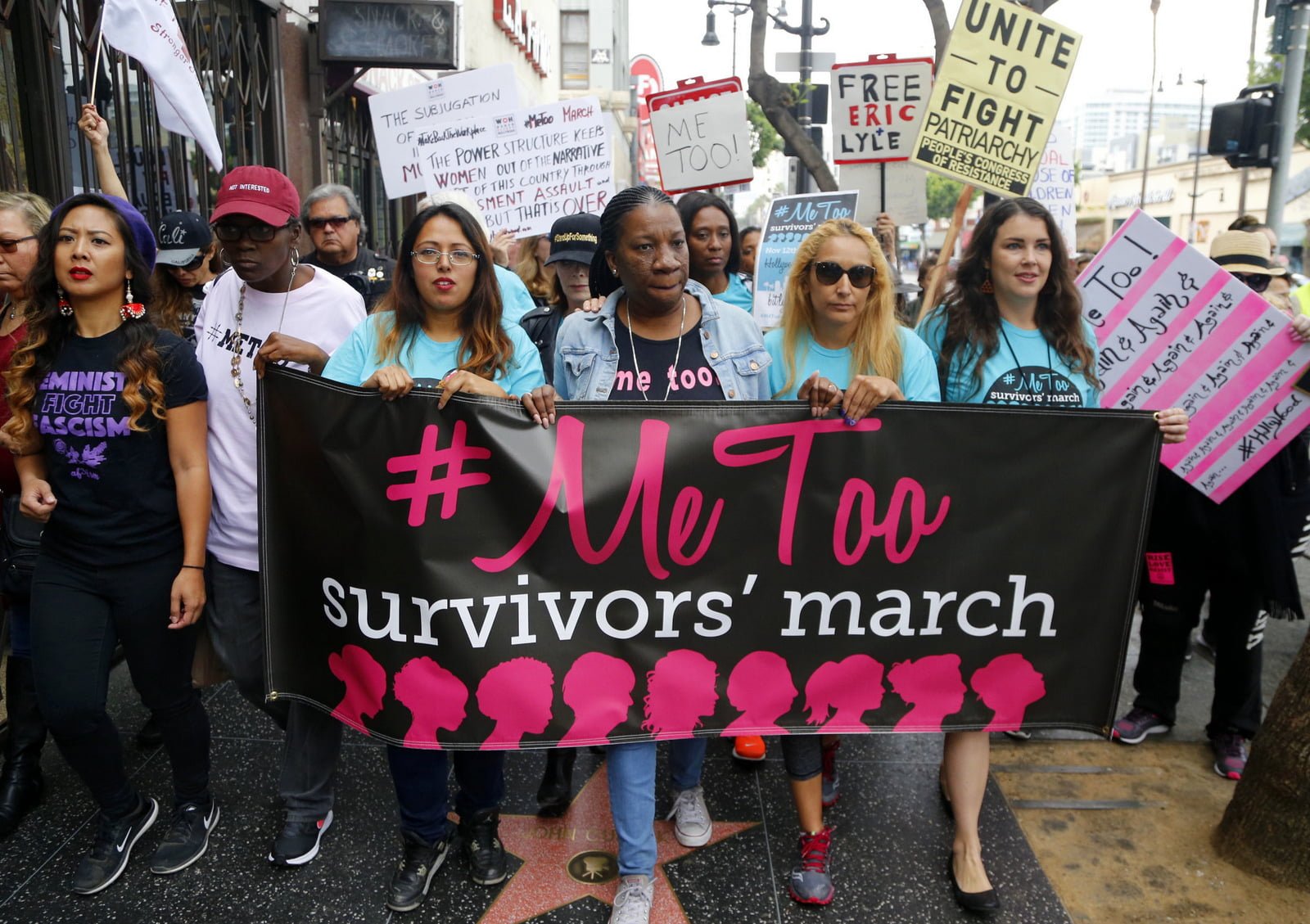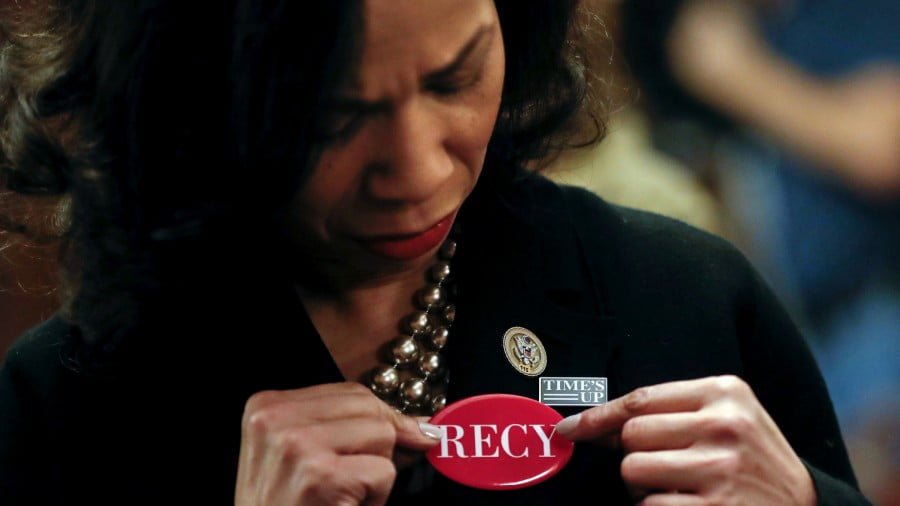As American as Apple Pie: Rape in a Culture that Looks the Other Way
Shortly before midnight on September 3, 1944, an African-American sharecropper named Recy Taylor was walking home from church with two companions in Abbeville, Alabama when the women noticed a green Chevy sedan drive past four times before finally rattling to a stop just a few feet ahead.
Seven white men, armed with knives and guns, leapt from the car, accused Taylor of assaulting a white, teenage boy earlier in the day, shoved the honey-colored 24-year-old wife and mother into the back seat, and sped off into the night, according to the scholar and author Danielle McGuire in her superb historical account,At the Dark End of the Street: Black Women, Rape and Resistance.
What followed was both unspeakable and wholly predictable: amid a grove of pecan trees off the main highway, the oldest of the mob, 24-year-old Herbert Lovett, laid down a soiled hunting coat, ordered his friends to strip down to their socks and t-shirts, and, hovering over the sobbing Taylor, snarled, “Act like you do with your husband or I’ll cut your damn throat.”
Six men raped Taylor, tied a handkerchief around her eyes, drove her to a remote stretch of highway and abandoned her there.
Wrote McGuire:
A few days later, a telephone rang at the NAACP branch office in Montgomery, Alabama. E.D. Nixon, the local president, promised to send his best investigator to Abbeville. That investigator would launch a movement that would ultimately change the world.
Her name was Rosa Parks.”
A culture of rape

The Washington press corp has covered the most recent allegations of domestic violence by high-ranking White House staffers as a partisan political issue. Feminists say that the narrow contextualization — coupled with the episodic, police-blotter quality of the media’s reportage of sexual misdeeds by powerful Hollywood celebrities — trivializes one of the defining issues of the modern age, and squanders a prime opportunity to finally cauterize a wound that is every bit as raw as the nation’s racial divide.
“The media just won’t discuss the larger problem,” Melissa Minds VandeBurgt — the Head of Archives, Special Collections and Digital Initiatives at Florida Gulf Coast University (FGCU) in Fort Myers — told MintPress, “which is that we live in a culture of rape in this country.”
Along with slavery, and genocide, rape is universally regarded by major Abrahamic and Eastern religions as a crime against humanity, meaning that there exists no circumstance in which the commission of the act is morally defensible.
The United States, of course, was founded on all three.
You can, in fact, argue that the violence that continues to be inflicted on women’s bodies is as profound, and traumatizing, as the violation of the black body, historically speaking. Studies indicate that one in every five women has been the victim of sexual assault, and the Rape, Abuse and Incest National Network estimates that someone in America is raped about every 100 seconds in the U.S.
“Patriarchy,“ the author McGuire told MintPress, “does not recognize women as full human beings or even citizens. They were the property of their fathers first and then their husbands. It’s similar — though not identical — to the treatment of African-Americans as chattel, or livestock.”
Predators protected

In the latest scandal, White House Chief of Staff John F. Kelly’s job is reportedly in jeopardy after he mishandled allegations of spousal abuse against Rob Porter, the staff secretary who resigned in disgrace last week after photographs of a battered ex-wife were published. Pundits and journalists have criticized Trump, who has himself been accused of multiple sexual improprieties, for defending Porter, as he has defended others accused of assaulting or battering women in the past.
Last week, Trump tweeted:
Peoples [sic] lives are being shattered and destroyed by a mere allegation. Some are true and some are false. Some are old and some are new. There is no recovery for someone falsely accused — life and career are gone. Is there no such thing any longer as Due Process?”
The media’s preoccupation with Trump, however, misses the point entirely. It would be far more useful if the media led a national conversation on the social infrastructure — police, prosecutors, peers, producers, judges, employers and employees — that undergirds the debasement of women by a range of powerful men, including the filmmaker Harvey Weinstein, anchorman Matt Lauer, former Minnesota Senator Al Franken, and former talk-show host Charlie Rose.
“The news media doesn’t contextualize anything,’ McGuire said, continuing:
What we know about sexual predators . . . is that they’re bullies and they target those who are the most vulnerable, who are least able to protect themselves. And, we know also that predators protect other predators. We’re hearing Rob Porter described as a predator and we know that Donald Trump’s first wife described him as a predator years ago. Trump’s defense of Rob Porter has everything to do with his defense of himself. Predators look out for one another, they embolden one another and they defend one another.”
As evidence, McGuire invoked former Oklahoma City police officer Daniel Holtzclaw, who was sentenced in 2016 to 263 years in prison for sexually assaulting eight women. Similar to Lovett and the mob of young white men who singled out Recy Taylor in the Jim Crow South, Holtzclaw selected his victims from Oklahoma City’s poorest neighborhoods, prosecutors said, in a preemptive attempt to undermine any allegations the women might make against him.
And nearly 150 women have come forward to testify at the sentencing hearing for Larry Nassar — a former doctor for USA Gymnastics and sports medicine physician at Michigan State University — who has pleaded guilty to charges of criminal sexual conduct and child pornography.
Said McGuire :
Larry Nassar was able to do what he did for so long because people at the very top were willing to overlook bad behavior by men and demean the women who made accusations against him.”
This calculation has long left women of color, generally, and black women, specifically, more vulnerable to rape. This dates back to slavery, when white men not only exploited African-American women for sexual gratification and free labor, but “they were used for their reproductive labor as well,” McGuire said. “Rape was literally used to reproduce the slave system.”
“Predators prey on people who are least protected by the law,“ McGuire continued. “If A-list actresses can’t be heard then we can only imagine what black working-class women are going through every day.”
The press, VandeBurgt said, is doing the public a disservice by not connecting the dots between Porter and someone like, say, Brock Turner, a 20-year-old Stanford University swimmer who a judge sentenced to only six months in jail after he was convicted two years ago of an especially brutal rape of a young woman near a dumpster outside a campus fraternity house.
“What these men all have in common is that they’re powerful, and they’re male and they’re almost all white,” VandeBurgt told MintPress in a phone interview. “Americans are convinced that we’re better than that, and so we’ve put the blinders on. The culture that enables rape is everywhere.”
An exhibit that holds up a mirror
VandeBurgt curates an exhibit that opened last month at the FGCU Library Archives and Special Collections, using two novel platforms — zines and artists books — to explore the prevalence of sexual violence.

Derived from “magazines,” zines are alternative, usually graphic publications that use inexpensive, easily accessible materials. As a genre, zines have historically been used by political, social and counterculture movements to easily and inexpensively proliferate information. They are often created in a cooperative, employing multiple modes of expression such as poetry, essays and visual art. VandeBurgt says the library has acquired hundreds of zines that address gender violence.
The second medium consists of artists books included in a collection of oral histories from the library’s “S(he) Will Fade” collection. Compiled by a university student following a personal experience with sexual assault, S(he) Will Fade has traveled the nation since 2013, accumulating true stories from survivors of sexual violence. These histories are used to create documentary theater, film, photography, painting, and dance.
VandeBurgt said that she hopes the exhibit will achieve what the media won’t, and help “Americans begin to look at themselves honestly.”
“People need their eyes to be opened,” she said, comparing the #MeToo movement to a crack in a mirror:
My hope is that these fissures will shatter the mirror and give us an opportunity to reinvent it — and ourselves — more honestly. We must begin to account for the horror of it all.”
Top Photo | Rep. Lisa Blunt Rochester, D-Del., adjusts her ‘RECY” button as she joins other House members in wearing black in support the metoo and timesup movement, ahead of tonight’s State of the Union address on Capitol Hill in Washington, Tuesday, Jan. 30, 2018. Members of the Congressional Black Caucus and members of the Democratic Caucus wore red pins in memoriam of Recy Taylor. Taylor was abducted and raped while walking home from work in Alabama in 1944. (AP/Pablo Martinez Monsivais)
By Jon Jeter
Source: MintPress News







